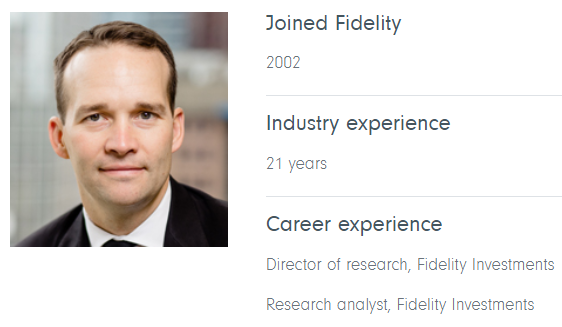The Fed and the BoC (Bank of Canada) have stated they will not be price makers, but rather focus on restoring price stability. This will be seen through the coming up announcements.
BoC set to make its next rate announcement on January 25th, and The Fed on February 1st, what can investors expect to hear, and what are the big themes that advisors should look out for.
Debate now isn’t how high will rates go, but rather how long will they stay at current level.
Joe’s Disneyland analogy for rates in 2023: The kids are asking ‘are we there yet’, and now you get out of the car and instead of going on the new exciting rides and eating cotton candy, you’re going on the teacup ride and eating carrots.
Thus, to say, we’ve had very favorable rates leading up to this point but understand that we’ve gone through a time where financial conditions were very accommodating. Very low rates, quantitative easing etc. So, we can now cheer that they may not go higher, but at the same time may be stickier than we’re used to in past years on the way back to normal levels.
Why are jobs still growing and what is the impact of that?
Behavioral economics playing a large role here. There’s a large part of the population in the older segment and in the younger segment that have left the job market.
This is a ‘sticky’ situation. CEOs and CFOs are people that go to work and they’re human beings too, they have emotions and biases. Since the pandemic started people have been telling business leaders to lay employees off, now were seeing in some cases a make up for that.
What are your inflation expectations for this year?
Going from 8% down to 4% will be more attainable, going from 4% to 2% is where we will see tougher policies have to be put in place.
Three big buckets affected:
- Goods
Good news with hard goods, the prices are coming down, and you’re seeing that with the consumers reports. Actually, having sales this past year for consumer discretionary. in the past few years’ companies had to essentially eliminate sales because they couldn’t get inventory through the supply chain issues. - Commodities
If commodities come down, it’s not going to be supply driven. It’s a boring time right now to be a commodity CEO or energy CEO. They’re not really adding any supply. They’re not adding any capital expenditures, very little exploration for several reasons.
If commodities do come off, it’ll be demand driven. China opening more post pandemic, a billion people opening over time is a positive driver of global GDP.
Concern for commodities is that if we do go into a recession, they’ll bring down all goods, not just commodities, but right now, the commodity outlook is probably a little bit more stable on the margin. - Labour
Should start seeing year over year comps getting better for inflation, but it’ll be the last 200 basis points like mentioned earlier which will be the hardest. The Fed has a dual mandate, jobs and inflation. But which is more important? If you say jobs, then the higher inflation has this knock-on effect on bonds, gold or commodities in general. It’s all intertwined and that’s the challenge of a dual mandate.
What size of recession are you expecting based on the analysis you’ve seen?
Prefer to look at this through probabilities instead of guaranteeing one outcome over another. Joe thinks it’s very dangerous when you say, ‘for sure’ this is happening. Joe thinks people that say that love to give headlines and love to be in the news. But a lot of this is grey in reality.
Data right now, we are not talking about recession, job numbers are very robust. Consumer spending is generally decent. It is maybe getting a little slower, but it’s still very positive.
Probably more the second half of this year we’ll see slower economic growth.
The amount of cash and deposits in the banks, and the actual job market would point to probably it’s more anemic growth and the shallow recession route. Normally you don’t have quantitative tightening and interest rates rising at the same period. There’s a delayed effect on tightening. You don’t start to see the effects until about 6 months after.
Where do you see energy going this year?
There’s not a real supply response here. CEOs of these energy companies are doing what they’re being told by their investors, and that is don’t grow.
Government themselves are telling them to not grow, focusing on dividends and buybacks.
One of the biggest concerns in Canada is carbon capture. Waiting for the Canadian Government to outline the tax benefits with implementing carbon capture facilities.
U.S with their new tax system for carbon capture, make it very attractive to do carbon capture. Debate is that if we don’t do something, we won’t be as cost competitive with the U.S.
Will Canada have to keep up with that of the U.S in terms of carbon tax policies?
Joe thinks the way capital markets work we will have to. Capital markets will find a solution if you don’t want to find a solution. What he means by that is if you don’t want to give us the tax benefit and our neighbor does, we will move capital there.
Canadian Government has been pragmatic about this in the past, and at this point in time isn’t moving as fast as the U.S, and if they don’t move, capital will move elsewhere.
What are your thoughts on oil prices?
Flash back to last February, obviously Ukraine crisis in the beginning, drove up the risk premium.
As we progressed through the year the premium dropped likely because Russia found other outlets in particular China and India, probably unofficially in terms of public matters.
China slowed down with more closure due to pandemic lingering.
Federal reserve: Raising interest rates to a large degree gave away to a slowdown in global GDP which has slowed commodities as well.
This year: Russia news being mostly neutral, China opening up and the Fed getting closer to less of a negative headwind.
What sectors in the Canadian market do you see opportunities in?
Consumer staples are still seeing a benefit. Some of the big names in the grocery space are benefiting. Grocers have a very small net margin, so any inflation was beneficial to them.
Industrial space, our rails are still getting pricing. Can pass on the prices and we are seeing that right now.
What are you hearing from bank CEOs?
Seeing headwinds. Bank stocks are a leveraged play on the economy. Equity/debt markets were benefiting but we’re seeing that choked off with the high rates.
Capital and debt financing very quiet, even seeing some layoffs among investment banks.
Balance sheet issues are bad meaning there’s a lot of bad loans and they might need to raise equity. We’re not seeing that right now.
Currently seeing income statement issues. income statement issue means a revenue growth issue and thus earnings growth has headwinds. You’re seeing more anemic growth going forward. Again, some of that is already priced in with nine times earnings. We must respect that these banks are seeing headwinds.
This article was written by:

